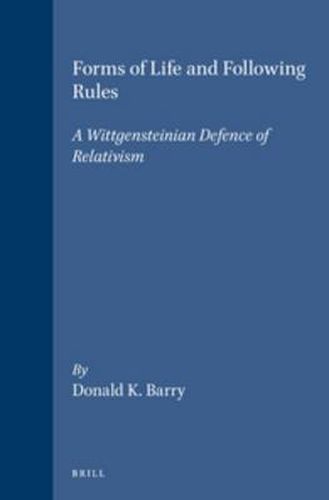Readings Newsletter
Become a Readings Member to make your shopping experience even easier.
Sign in or sign up for free!
You’re not far away from qualifying for FREE standard shipping within Australia
You’ve qualified for FREE standard shipping within Australia
The cart is loading…






This study defends a version of epistemological relativism, taking as its point of departure some key arguments from later work of Ludwig Wittgenstein - especially those concerning rule following and forms of life. An opposition is established between the dominant form of epistemological realism - that which relies upon ‘truth-conditions’ - and theories in which knowledge and truth are fundamentally dependent upon context. It is argued in Part 1 that Wittgenstein proves the necessity for a contextual understanding of knowledge. Part 2 develops a clearer idea of that context, using Thomas Kuhn’s concept of paradigm. It is argued that this concept has been largely misunderstood (even by Kuhn), but that it can be developed to be remarkably consistent with Wittgenstein’s arguments. All those - philosophers, historians, sociologists and others - who wish finally to understand the complex issues involved in debates about epistemological relativism will find this book invaluable.
$9.00 standard shipping within Australia
FREE standard shipping within Australia for orders over $100.00
Express & International shipping calculated at checkout
This study defends a version of epistemological relativism, taking as its point of departure some key arguments from later work of Ludwig Wittgenstein - especially those concerning rule following and forms of life. An opposition is established between the dominant form of epistemological realism - that which relies upon ‘truth-conditions’ - and theories in which knowledge and truth are fundamentally dependent upon context. It is argued in Part 1 that Wittgenstein proves the necessity for a contextual understanding of knowledge. Part 2 develops a clearer idea of that context, using Thomas Kuhn’s concept of paradigm. It is argued that this concept has been largely misunderstood (even by Kuhn), but that it can be developed to be remarkably consistent with Wittgenstein’s arguments. All those - philosophers, historians, sociologists and others - who wish finally to understand the complex issues involved in debates about epistemological relativism will find this book invaluable.